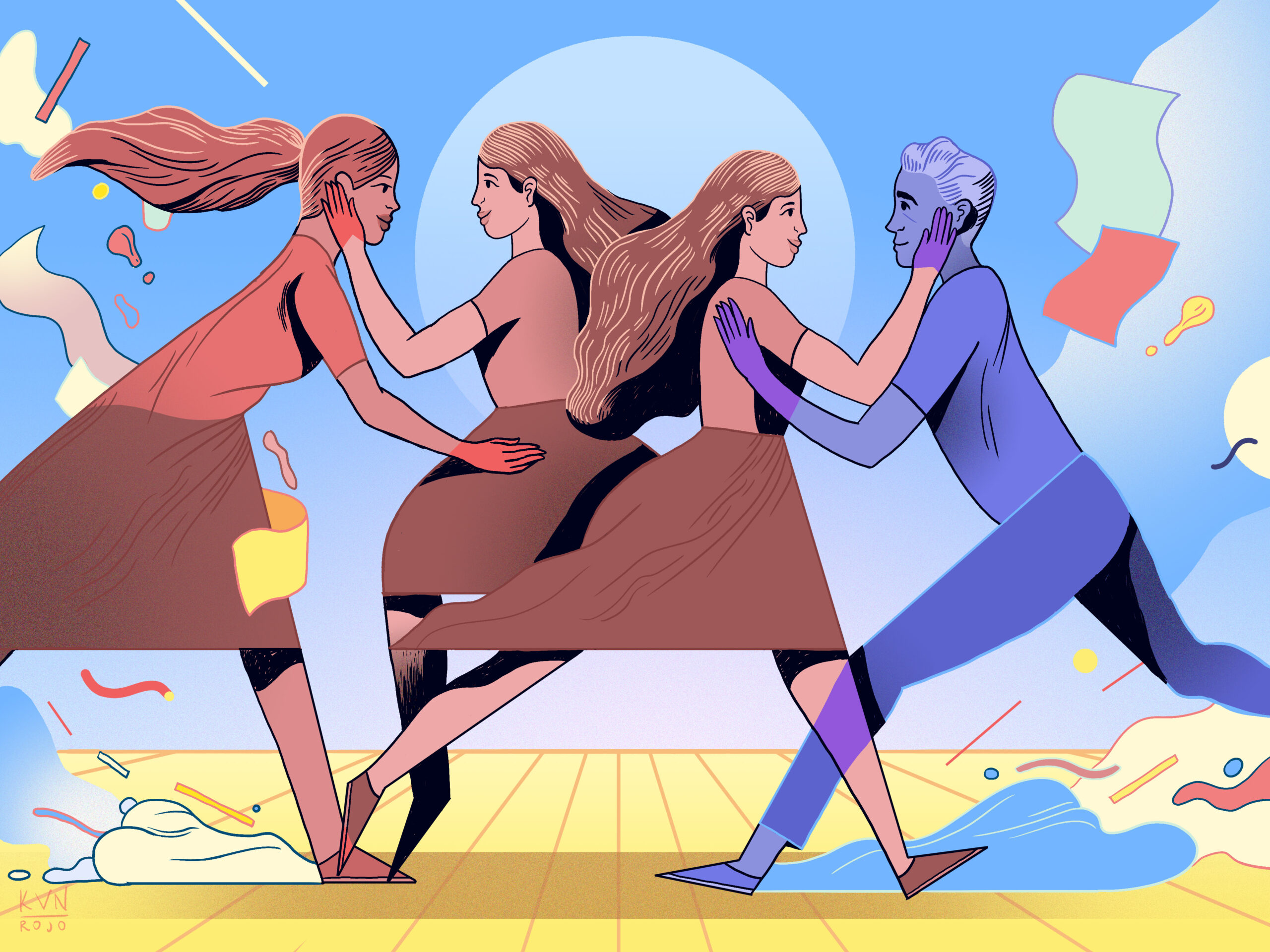For almost my entire life, I thought I had to pick a side to define my sexuality.
When I was growing up, I remember people explaining what bisexuality meant. They said bisexual people were confused about where their attraction lies — boys or girls. Both was never an option.
This shaped how I felt about myself and why I thought I was heterosexual for a long time. In fact, it took me a while to admit to myself, and to others, that I was bisexual.
Bisexual people are often stereotyped as gay or straight depending on who they are in a relationship with. Bi-erasure is people’s tendency to ignore the existence of bisexuality; to me the bi-erasure and having people invalidate my sexuality has always hurt me the most.
I was in middle school the first time I encountered bisexuality.
I remember one girl who came out as bisexual; she was dating another girl and at the time, and everyone kept referring to her as a lesbian. She was my only example of bisexuality. Watching people treat her like this confused me. No one was mad she was dating a girl, but it is almost as if they decided for her, who and what she was going to be. I often thought of this when I initially started questioning my own sexuality and it always played a part in me being scared to come out because I figured I would be invalidated.
Growing up, I didn’t learn about any type of sexuality that was not straight. No one taught me that bisexuality and being bi-curious were two different things. In my young mind, they both meant confusion.
I eventually learned this was not the case. It always stuck in the back of my mind, crawling out at random times throughout my life and hindering my courage to talk about who I was and what I felt.
I don’t necessarily have any personal experiences where people told me things from a place of malice or with the intention to hurt me; rather, it comes from a place of ignorance and little to no exposure to the bisexual community.
The first time I was really confused about my attraction to women I kept pushing it away. I liked boys my whole life and I was going to continue only liking them even if I wasn’t so sure. I thought, I only ever dated boys so I was straight, right? This seemed to be the easier answer to the question, so I told myself this over and over, unsure of what to think of my conflicting feelings.
At this time, I knew that someone could be bisexual and be in either a heterosexual or homosexual relationship, but I still struggled with the myths that people around me believed about bisexual people. It had been a struggle for me to fight between what I knew in my mind and what they had always told me.
I started coming out as bisexual and being open about my sexuality in my senior year of high school. I wanted to stop hiding myself. When I first told my friends I was bisexual, I wasn’t in a relationship. Their support was overwhelming. So when I got into a relationship, I expected the same level of encouragement — I was wrong.
When I started dating my partner, everyone started to assume I was straight again, because I am in a heterosexual relationship. I felt like my bisexuality was no longer valid and that hurt me. I felt like I was accepted one moment and faced the brunt of rejection the next. Just like before, I felt like my identity was erased.
One time, someone asked me if my boyfriend was worried I would cheat on him because “I wanted both.” This comment broke my heart.
I often hear people make comments on how they have no problems with bisexuals as long as they’re faithful to their partners. This was hard to hear because it insinuates that being bisexual automatically makes someone unfaithful, when in reality, cheating on a partner has nothing to do with sexuality.
I felt like my sexuality is not taken seriously because I have the privilege of being in heterosexual relationship, which means I don’t experience the level of discrimination that other types of queer people experience — I acknowledge that. As someone who is in a heterosexual relationship, it’s easy to assume that I’m just another straight woman. This makes it hard to come out to people. Oftentimes, I refuse to come out — it’s hard to say you’re bisexual while also sitting next to your boyfriend. I rarely correct people when they assume I’m straight because I have a boyfriend. I do this because sometimes it’s easier to hide parts of me than to defend my whole self.
But my sexuality and my relationship are both valid. And if I learned anything, people will have their own interpretations of someone’s sexuality and you need to be your own ally because not everyone will be. This is why bi-erasure hits hard — because you need to fight for yourself and your existence.
I had to tell myself, I’m a valid part of the queer community.
In fact, my relationship does not define my sexuality — I do.


 Why you can trust Xtra
Why you can trust Xtra


